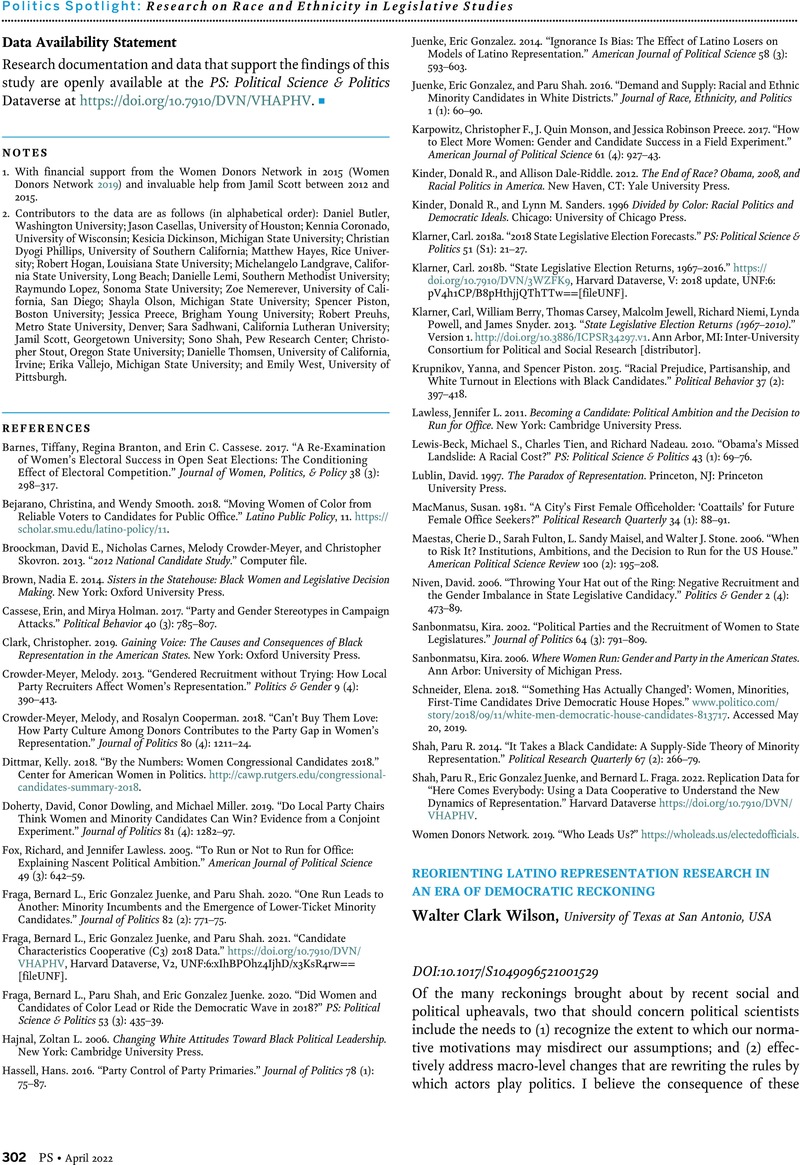No CrossRef data available.
Article contents
Reorienting Latino Representation Research in an Era of Democratic Reckoning
Published online by Cambridge University Press: 31 March 2022
Abstract
An abstract is not available for this content so a preview has been provided. Please use the Get access link above for information on how to access this content.

- Type
- Research on Race and Ethnicity in Legislative Studies
- Information
- Copyright
- © The Author(s), 2022. Published by Cambridge University Press on behalf of the American Political Science Association
References
REFERENCES
Fenno, Richard F. 1978. Home Style: House Members in Their Districts. London: Longman Classics Series.Google Scholar
Frank, Thomas. 2017. Listen Liberal: Or, What Ever Happened to the Party of the People? New York: Picador.Google Scholar
Hacker, Jacob S., and Pierson, Paul. 2010. Winner Take All Politics: How Washington Made the Rich Richer and Turned Its Back on the Middle Class. New York: Simon & Schuster.Google Scholar
Hacker, Jacob S., and Pierson, Paul. 2020. Let Them Eat Tweets: How the Right Rules in an Age of Extreme Inequality. New York: W. W. Norton and Company.Google Scholar
Wilson, Walter Clark. 2017. From Inclusion to Influence: Latino Representation in Congress and Latino Political Incorporation in America. Ann Arbor: University of Michigan Press.CrossRefGoogle Scholar


